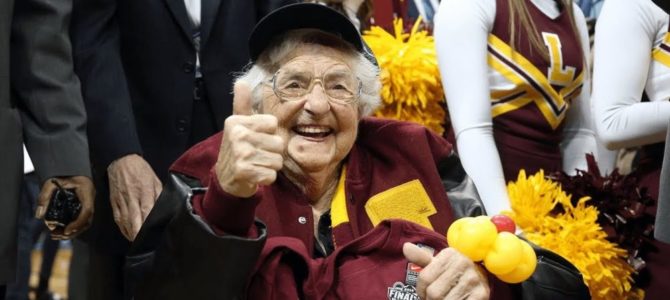Loyola is not supposed to be a sports school. Its football program was discontinued in the 1930s. Soccer never really got off the ground the way the team hoped it would. Even when the men’s volleyball team won back-to-back NCAA championships in 2014 and 2015 most students were still unaware the school had a men’s volleyball team, let alone a successful one.
The university isn’t really designed for sports, either. The gym (somewhat ironically named the Gentile Center), originally had fold out stands, barely larger than most high school gymnasiums. The dedicated athletic training center has to be shared between all the teams because it’s not large enough for everyone to practice simultaneously.
And that’s it. There’s a small outdoor field tucked into a corner of campus, but being in Chicago it’s inoperable about half the year. The rest of campus is dedicated to academic buildings, dorms, libraries, a chapel, Jesuit residence, and a student center. There are two quads (an east and west one), and the school’s Information Commons sits about 20 feet from the waves of Lake Michigan.
Despite the institutional apathy towards sports, Loyola has two major athletic achievements to its name, and they’re both tied to the 1963 men’s basketball team. That year, the Ramblers won the NCAA championship by starting four black players, which helped end segregation in the sport. And to date the 1963 team is the only team from Illinois to win the title.
The glory of the 1963 team was heavily emphasized during my time at Loyola, from 2011 through 2015. The fiftieth anniversary of the championship run, in 2013, was a big event on campus.
But beyond that team sports has never had much of a place at the university. The university’s academics, Catholic, Jesuit identity, and its history are it’s selling points. Those aren’t bad ways to sell a university, but it does make it difficult to build a dedicated base of students and alumni who take pride in the institution.
That has all changed this year. But it didn’t begin this year.
As a student, rumors abounded among the sports savvy that one day, soon, the men’s basketball team would be good. Really good. Moving from the Horizon League to the Missouri Valley Conference in 2013 was supposed to be a game changer for the program, and so far that prediction looks prescient. Hiring Porter Moser as head coach was supposed to complete the puzzle and bring Loyola’s basketball program back to life.
For most of Moser’s time at Loyola student interest in the team has been anemic. I went to a few games as a student and the crowd, to the extent there was one, was comatose to the action on the court. In fact, until the 2017-2018 season, Loyola was last in the league for home attendance.
This season has been different and exciting. The Ramblers stomped through the Missouri Valley Conference and won their conference tournament earlier in March, which meant they automatically received an invitation to the NCAA tournament.
Despite being an 11 seed the Ramblers have shown they belong in the tournament. First they knocked off 6 seed Miami with a 30 foot buzzer beater shot. In the second round they beat Tennessee in similar fashion by hitting a basket with 6 seconds left on the clock. In the Sweet Sixteen Loyola dashed 7 seed Nevada’s hopes by hitting another three pointer as the game was winding down. The Ramblers punched their ticket to the Final Four by dismantling Kansas State and winning by sixteen points.
The tournament has been exciting to watch, and not just because of the buzzer beaters or Loyola’s style of play. For a small school to get to the Final Four is one thing; for a small school that isn’t known for its athletic programs to do it is another.
Students and alumni from legacy schools like Notre Dame, Ohio State, Mississippi State, Auburn, and others will always have their football teams to root for. Students and alumni from basketball-rich schools like Marquette, Gonzaga, Georgetown, Duke, Kentucky, and Virginia will always have their teams to fall back on.
But Loyola doesn’t have those traditions, and so Loyola’s run means something different. It’s not just a bookend for the 1963 team, although it is that. It’s not just a vindication of the decisions of the Athletic Department has made over the past half decade, although it is that too.
Loyola’s Final Four run is a point of pride and an announcement that the university is more than just “the school by the lake.” By proving ourselves on college basketball’s biggest stage Loyola has arrived into its own as a university that commands respect and demands to be taken seriously on a national level. Knowing that Loyola has earned and deserves that respect builds a pride in the university that was sorely lacking among students and alumni alike.
For alumni like myself this run has been nothing short of unbelievable. Loyola as a sports school is weird, but welcome. We don’t want this to end. Maybe it won’t.









